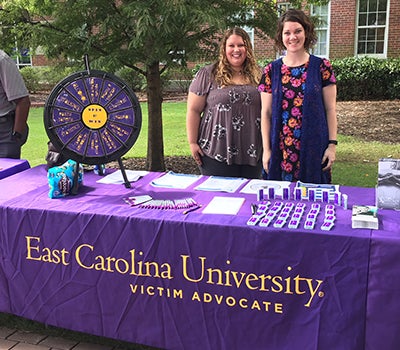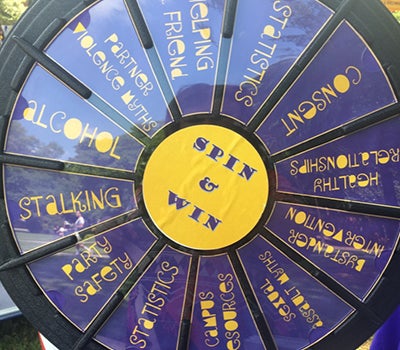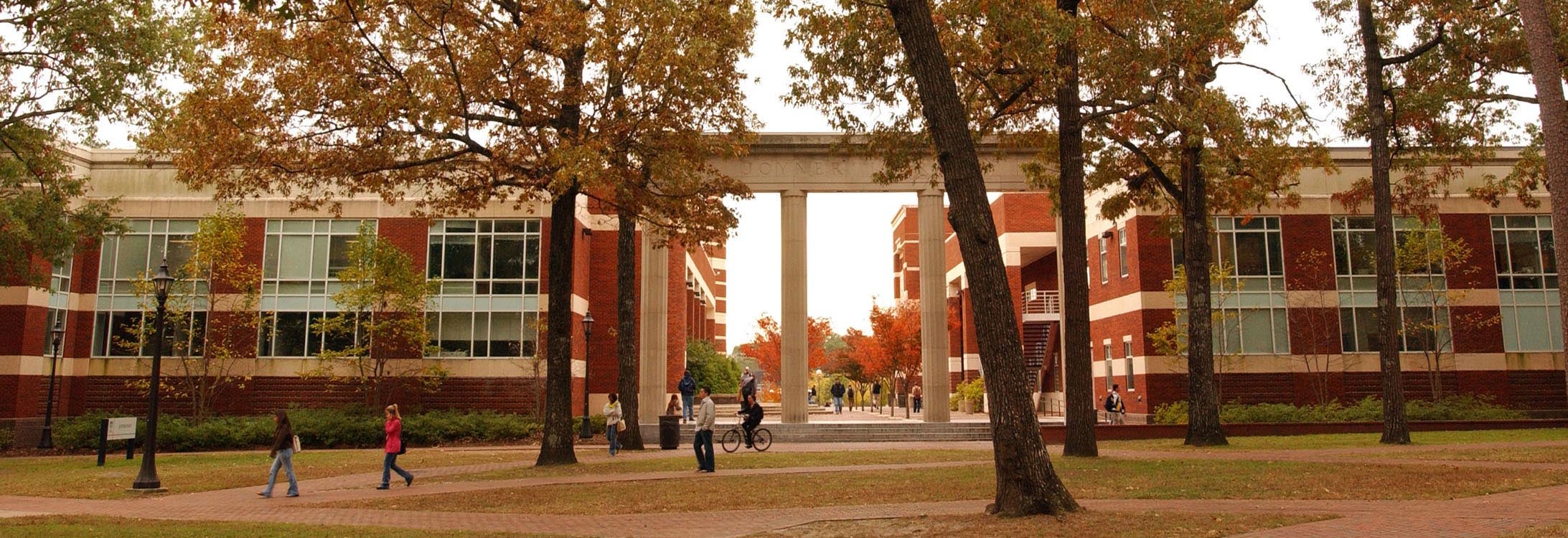YOU ARE NOT ALONE
Meet ECU’s victim advocates

Brittany Egan, left, and Kat Bursky provide information about victim advocacy during Barefoot on the Mall. (Contributed photo)
When the unthinkable happens, students at East Carolina have somewhere to turn.
Since 2005, the university has provided counseling and assistance to student victims of crime through its Victim Advocacy program, regardless of whether the incident occurred on or off campus.
“We provide free and confidential services to any student who has experienced crime,” said victim advocate Brittany Egan. “That can be sexual assault, partner violence, stalking, armed robbery, theft, harassment … whatever someone has experienced.”
Egan and fellow advocate Kat Bursky are trained and certified to provide one-on-one counseling, and the program also offers group therapy.
“When a student comes to us, our goal is first to make sure they’re OK and they’re safe, and then just present them with all the options,” Egan said. “We do not persuade or push any option; we just say, ‘Here’s what’s available through the university and through our legal system, and should you want to pursue any of those, we can help walk you through those processes.’”
For example, after a sexual assault, “we’d let them know that the ECU Police Department is an option, Greenville Police Department is an option, or there’s Title IX, which is our office on campus that does investigations regarding sexual assault,” Egan said. “We’ll also let them know about medical options, which include going to Student Health Services — they have trained sexual assault nurse examiners who can do rape kits. They can also go there for STI (sexually transmitted infection) screenings, Plan B, things like that. Or the Vidant hospital is always another option.”
Unique to the program is that an advocate will accompany students to the police station, medical exams and even court proceedings.
“Whatever they need, we’re there to walk alongside them through it,” Egan said.
The services are confidential, so students have the opportunity to explore the pros and cons of their options without the pressure of feeling forced to pursue additional reporting or other actions.

All services provided through the Victim Advocacy program are free and confidential. (Contributed photo)
Advocates also help connect student victims to other resources on campus to help ensure that they get the help they need to continue their education following the traumatic event. Egan said one of the challenges she and Bursky face is that not enough students know the Victim Advocacy program is available.
To that end, they make presentations during orientation sessions and in classes, as well as maintaining a presence at campus events such as Get a Clue, Pledge Purple and Barefoot on the Mall. Students can also be referred to a victim advocate by a general counselor or other agencies on campus.
“We just want the students to know that we’re here and they’re not alone if they or a friend experiences something like this,” she said.
For students arriving on campus, whether for the first time or the fourth, she encourages them to educate themselves about what consent is and what healthy relationships are.
“I think a lot of times students don’t know whether the behavior they’re experiencing in their relationship is unhealthy or whether it’s normal,” she said. “Another thing is that it’s nice for them to have that community feel and take care of each other. This is your home, and this is your community.”
Egan emphasized that there is no right or wrong way to respond to being victimized. The effects can include anxiety, depression, guilt, fear, trust issues, eating or sleep disorders, difficulty concentrating, flashbacks, social withdrawal and more. She encourages students to be there for their friends — to listen to and believe them, reassure them that it is not their fault, that they are not alone and that help is available.
The Victim Advocacy program is housed in the Center for Counseling and Student Development in the Umstead Building. For more information visit http://www.ecu.edu/cs-studentaffairs/victimservices/index.cfm or call 252-737-1466.
